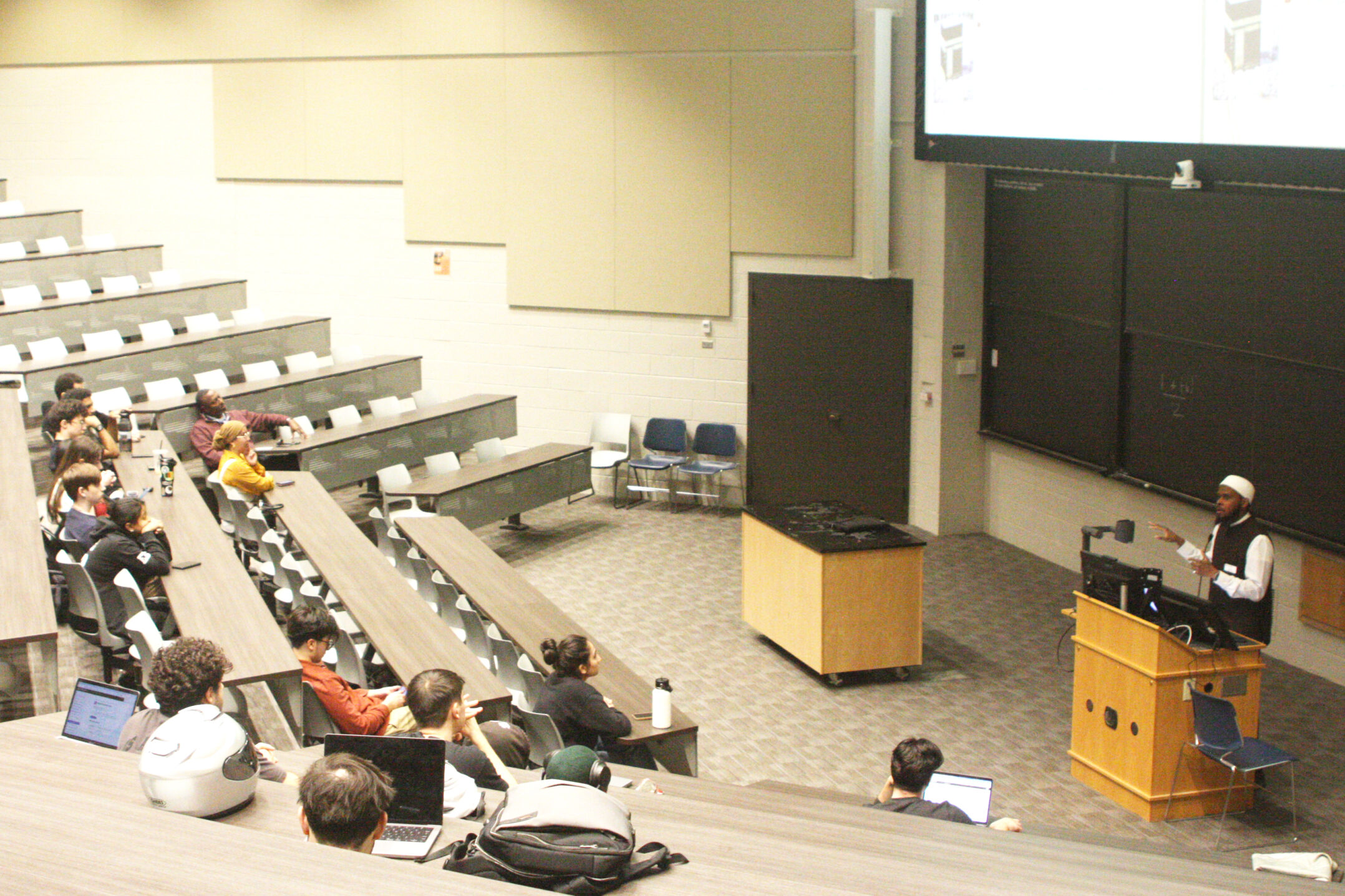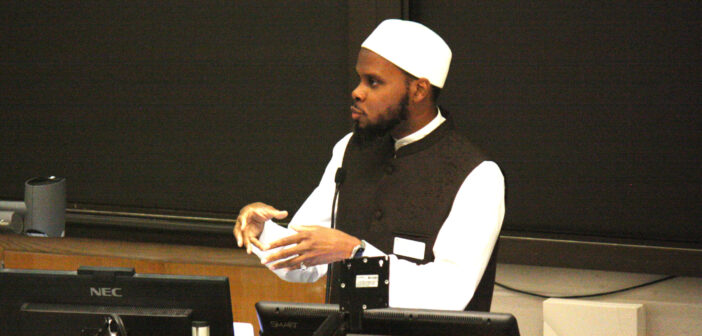A 5×10 event hosted to discuss misconceptions of Islam, invited students to watch Tariq Ameer, the director of Muslim Student Life at Lehigh provide an overview of Islam, common misconceptions about the religion and its true values.
The Oct. 22 event in Neville Hall was the first event Ameer has hosted since being appointed to his position earlier this semester.
Selim Eris, the president of the Muslim Student Association, said the event was held to combat recent Islamophobia seen on Lehigh’s campus, as well as dispel myths and create a better understanding of Islam.
In September, Ameer sent a survey to the Muslim Student Association to gather thoughts on the most popular misconceptions about Islam and said he compiled the responses in preparation for the event.
He said based on the responses, the most prominent misconceptions are how Islamic laws are stringent and that there’s a compulsion, meaning people who practice Islam have obligations and are forced to do a lot of things.
Other misconceptions he said he saw in the survey are individuals’ beliefs that Muslims don’t have humility and are cruel, Islam isn’t compatible with scientific advancement and Islamic women are oppressed.
At the event, Ameer discussed each of these misconceptions and provided evidence he had gathered to debunk them. He then held a Q&A session to explain Islam, the Quran, and Allah, citing his teachings from the “Why Islam is True” program series.
He said the goal of the event was to limit the spread of negativity toward Islam, and it’s part of a broader initiative to create an inclusive and informed environment for students of all backgrounds.
“As a member of (Muslim Student Association), and as someone who’s a Muslim, I’d say it’s important for people to know the realities of the religion itself and who Muslims are,” Eris said.
Eris said informative sessions are critical because they provide a platform for experts to directly address common misunderstandings and “clear up anything that’s clouding people’s minds.”
Donald Outing, the vice president for equity and community at Lehigh, said he attended the event to hear Ameer speak for the first time as he helped hire Ameer for the Office of Diversity, Inclusion and Equity.

Students listen to a talk by Tariq Ameer, the director of Muslim Student Life. Ameer hosted a 5×10 to discuss the misconceptions of Islam. (Lauren Slovensky/B&W Staff)
Outing said discussing difficult issues like misconceptions of Islam is important due to the widespread and negative rhetoric about Islam.
Outing also said he hoped Ameer’s presence would inspire others to learn from his teachings and educational sessions.
“I wanted to educate myself, and I’m hoping that even with my presence there, it will inspire others to want to come and hear as well,” Outing said.
Outing said he feels Lehigh must address Islamophobia and build bridges of understanding between different communities on campus.
Eris said having an inclusive and informed environment is important, especially in the wake of incidents that occurred earlier in the semester, including when Islamophobic pamphlets were left in an on-campus prayer space.
Ameer said the root cause of Islamophobic incidents is often a lack of understanding.
Ameer said he was somewhat nervous but ultimately ready to inform the Lehigh community. He expressed his concern about “doing justice” to the topic of Islam due to its significance to him.
“I’m used to speaking in public, but every single time there’s a bit of nervousness in particular, because, as one may imagine, Islam is something that’s very dear to my heart,” Ameer said.
Ameer said his role at Lehigh includes assisting students, faculty and staff in living their “best Islamic lives.”
Ameer also said he’s happy to act as a resource for students during times of need.
“I’m a servant to the people,” Ameer said.
Outing expressed his gratitude toward Ameer. He said it’s important to have someone like Ameer on campus to mitigate the hardships Muslim students face.
“We are really fortunate to have Tariq Ameer here with us, and I’m hoping the rest of the community takes the opportunity to hear his teachings,” Outing said.
Outing said open dialogue and education are essential in combating ignorance and fostering inclusivity.






Comment policy
Comments posted to The Brown and White website are reviewed by a moderator before being approved. Incendiary speech or harassing language, including comments targeted at individuals, may be deemed unacceptable and not published. Spam and other soliciting will also be declined.
The Brown and White also reserves the right to not publish entirely anonymous comments.